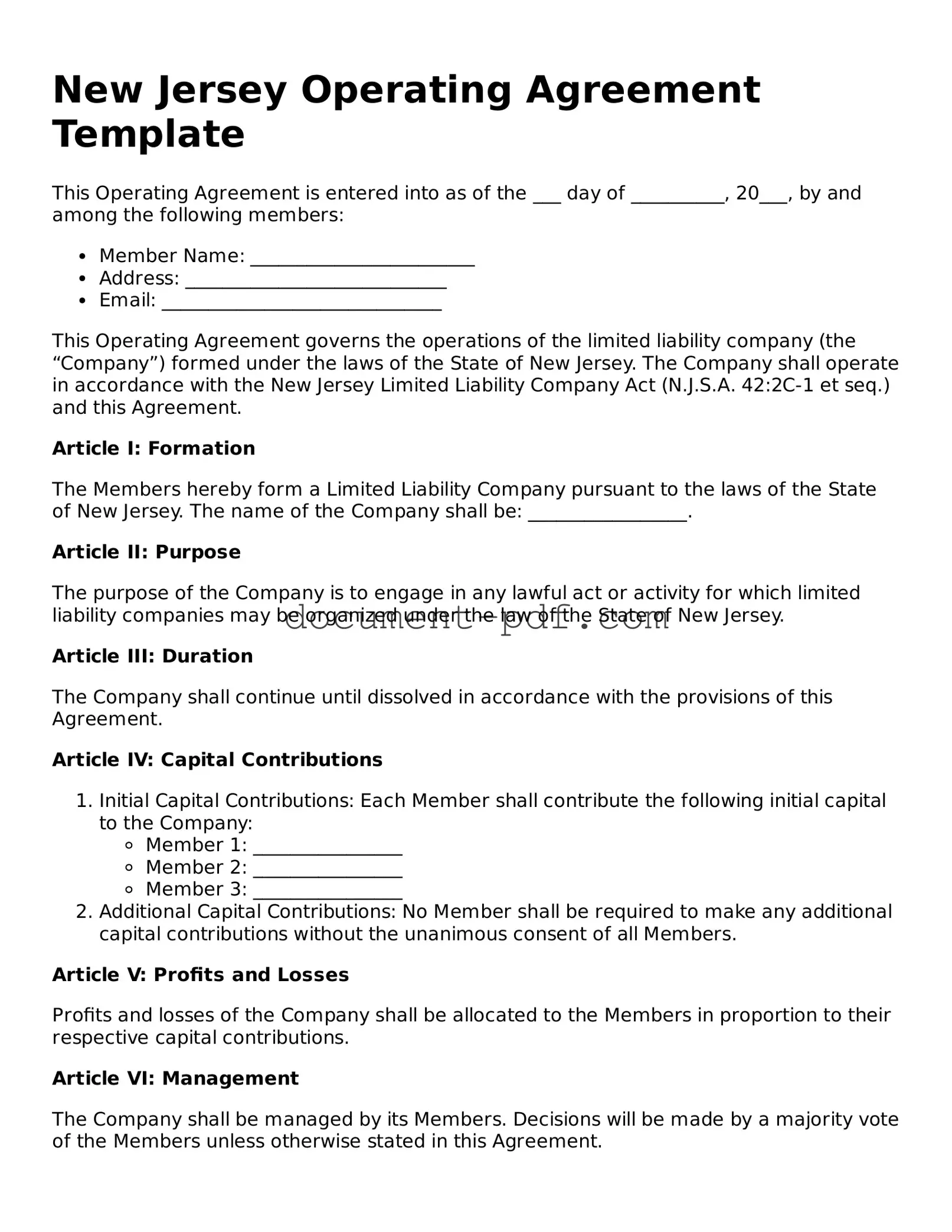Attorney-Verified New Jersey Operating Agreement Template
The New Jersey Operating Agreement form is a crucial document that outlines the management structure and operational procedures of a limited liability company (LLC) in New Jersey. This agreement serves to protect the interests of the members and provides clarity on various aspects of the business, including profit distribution and decision-making processes. Understanding and completing this form is essential for ensuring compliance and smooth operations within your LLC.
Ready to get started? Fill out the form by clicking the button below.
Access Operating Agreement Editor Here

Attorney-Verified New Jersey Operating Agreement Template
Access Operating Agreement Editor Here
Finish the form without slowing down
Edit your Operating Agreement online and download the finished file.
Access Operating Agreement Editor Here
or
Click for PDF Form
